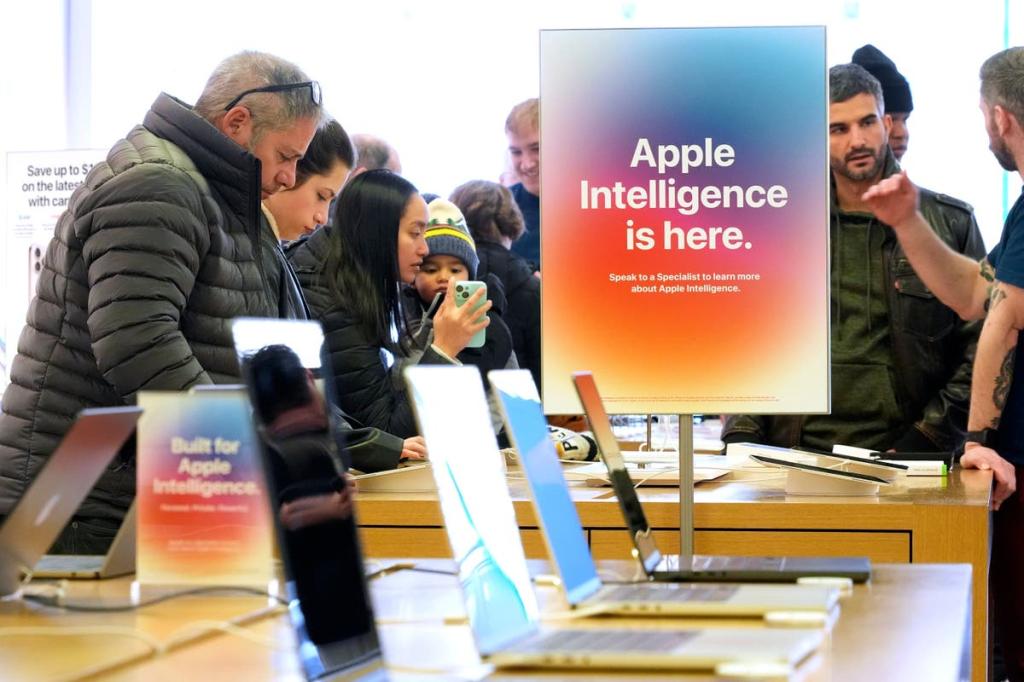UK Regulator Investigates Apple and Google’s Market Practices
The UK CMA is investigating Apple and Google to foster competition and innovation in mobile ecosystems, ensuring fairer practices for consumers and businesses.

Key Points
- The UK’s Competition and Markets Authority
is investigating Apple and
Googleto determine if they should be designated with strategic market status due to their dominance in mobile ecosystems.
- These investigations aim to assess whether the companies' practices create unfair barriers for competition and exploit app developers.
- A more competitive environment could foster innovation and economic growth, benefiting consumers and businesses across the UK.
The digital marketplace is at a pivotal crossroads, and the UK’s Competition and Markets Authority (CMA) is preparing to shine a light on the potentially monopolistic practices of two of the biggest giants: Apple and Google. With the landscape of mobile technology heavily dominated by these companies, the CMA's recent investigations into their practices represent a significant push towards fostering a more competitive environment. This initiative aims to ensure that consumers and businesses can benefit from fairer conditions in mobile ecosystems.
The Scope of the Investigation
Recently, the CMA announced its intention to investigate the mobile platforms of Apple and Google under the auspices of the new Digital Markets,
(DMCC). This act, which became effective this January, grants the CMA enhanced power to scrutinize and impose regulations on companies deemed to have "strategic market status" (SMS). This designation could enable the regulator to enforce changes that challenge the dominance of these tech behemoths.

The investigations will assess the implications of Apple’s iOS and Google’s Android operating systems, app stores, and web browsers on competition and consumer choice. According to CMA chief executive Sarah Cardell, “More competitive mobile ecosystems could foster new innovations and new opportunities across a range of services”. This perspective emphasizes how crucial it is for businesses and developers to navigate a fair playing field.
Impact on Consumers and Businesses
Virtually all smartphones in the UK rely on iOS or Android, leading to a monopoly-like scenario where competitors struggle to gain traction. The CMA will delve into whether the pre-installed apps—especially those that directly benefit Apple and Google—create barriers for rival developers. For instance, the default presence of Apple’s Safari browser and Google’s
on their respective systems raises questions about equitable access for third-party applications.

Moreover, the regulator will examine whether these tech companies are engaging in exploitative conduct by imposing unfair terms on app developers seeking to distribute on their platforms. For example, the fees and conditions within app marketplaces significantly affect smaller developers and startups, highlighting the need for more balanced policies.
The Bigger Picture in Digital Regulation
The CMA's investigations align closely with global trends in digital regulation, where authorities are increasingly scrutinizing Big Tech’s market behavior. In the EU, similar measures are underway to ensure fair competition and prevent abuse of power by dominant firms. The questions underlying these investigations are fundamental: Are Apple and Google leveraging their positions to suppress innovation and competition?

The potential consequences for Apple and Google could be extensive—ranging from operational requirements to financial penalties. As the CMA asserts, “Better competition could also boost growth here in the UK”. In this competitive climate, fostering innovation not only enhances consumer choice but also supports economic growth, crucial elements for a thriving digital economy.
A Call for Collaborative Solutions
Both companies have publicly expressed their willingness to cooperate with the CMA. Google emphasized that “Android’s openness has helped to expand choice”, whilst Apple highlighted its commitment to "thriving and dynamic markets". This collaboration can set a precedent for a regulatory framework that benefits all stakeholders involved—from consumers to small businesses.

As the investigations unfold, it is crucial for stakeholders to remain engaged in dialogue to proactively address the challenges facing the digital marketplace. The CMA’s approach offers a beacon of hope for fostering a balanced ecosystem where innovation can not only survive but thrive—as it should.
The implications of these investigations into the practices of Apple and Google are profound. By striving for a more competitive landscape, the CMA may pave the way for a digital environment that prioritizes fair treatment for businesses and increased choices for consumers. Ultimately, these regulatory measures could lead to greater innovation and economic resilience in the UK.

In a world increasingly shaped by technology, the actions of the CMA are vital in ensuring that the future of our digital marketplace remains bright and inclusive for all.


